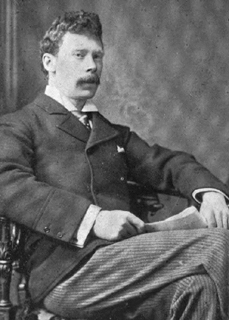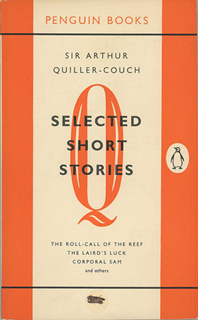
('Meetup Galleon' © Rob Bixby, 2013)
CAPTAIN KNOT
by MIKE SMITH
Sir Arthur Quiller-Couch (1863-1944), known as Q, sometimes pinned his short stories to an historical event: ‘The Laird’s Luck’, for example, hinges on an event that takes place on the eve of the Battle of Quatre Bras in the Waterloo campaign. Or ‘Lieutenant Lapenotiere’, which has as its eponymous hero the man who brings to the Admiralty the despatches telling of Nelson’s death at Trafalgar.
 There is also one story, pinned to a date rather than an incident, which might be hard for the modern reader to take. First published in 1917, ‘Captain Knot‘ is set in a public house in Bristol on the evening of Saturday 11th August, 1742. If it were not for that specific reference, made early on in the story, the tale might have been set several decades before or after without requiring major change. It is a story of three seamen conversing. They meet in the Welcome Home Tavern and talk about past events of their seafaring lives.
There is also one story, pinned to a date rather than an incident, which might be hard for the modern reader to take. First published in 1917, ‘Captain Knot‘ is set in a public house in Bristol on the evening of Saturday 11th August, 1742. If it were not for that specific reference, made early on in the story, the tale might have been set several decades before or after without requiring major change. It is a story of three seamen conversing. They meet in the Welcome Home Tavern and talk about past events of their seafaring lives.
The story is shot, to borrow a metaphor from cinema, over the shoulder of the Captain, which immediately raises the question of how we are to feel about him, as the main protagonist. Quiller-Couch may well be intending to wrong-foot us. As the story opens, the author focuses on him:
Aaron Knot, master of the Virginia barque Jebioda, though a member of the Society of Friends and a religious man by nature, had a tolerant and catholic mind, a quiet but insatiable curiosity in the ways of his fellow-men (seafarers and sinners especially), with a temperate zest for talking with strangers and listening to them.
It’s a long sentence, and gives us several key words to chew over, all of which are cast into doubt by that early ‘though’. In a paragraph that takes up most of the first page of the story, Quiller-Couch adds to the description, telling us how Knot dresses – as a Quaker – and behaves – ‘long hours, night after night, in his cabin, peaceably thinking about God’ – and how old he is – ‘sixty years’. His cargo is ‘mainly’ tobacco, which he has brought from Virginia. There is no mention, yet, of what he might have carried on his homeward journey.
Knot falls into conversation with two other men, one older than the other, thinking that the older man is known to him from long ago. The penny, or should that be the doubloon, soon drops. The older man is a pirate, one of a crew that Knot has previously encountered and whose fates will be revealed over the course of the story.
Quiller-Couch is a straightforward writer in many ways, but his simple, accessible language carries subtleties of meaning that raise questions we, rather than he, are to answer. That ‘though’ in the first sentence might be a good example of how he works.
Knot’s first exchanges are with the landlady, whose husband he enquires after. His is a regular run, and the tavern, therefore, a regular haunt. The landlady explains that her husband ‘is like every other fool in Bristol, crazy after the new preacher’. The preacher in question is John Wesley, and Knot comments that ‘in Georgia … they did not think much of him’. This is the reference that pins the story to that particular date, and to the Weslyan mission of saving souls.
It is this comment that brings the younger of the two men, who is also a convert, into conversation with the captain, and soon after, Knot recognises the older man. Though the younger has said that he is in the business of ‘the saving of souls’, and states that the salvation of his companion is his current task – ‘I know his need, and it’s a bitter hard one’ – as the conversation develops we find that the younger man has, in years gone by, been a confederate of the pirate, and instrumental in helping him to evade arrest.
The tale tangles as we discover more about the three men. The pirate ‘got the King’s pardon for it these four years’. The younger man has been a looter of wrecks, and his father a man of ‘free trade’ – used in the story to signify smuggling.
Much of the conversation centres on the pirate’s ship, The Rover, an almost bewitched ship, and one that eventually even the pirates have to struggle to free themselves from when they become tired of their trade, and want to retire, to benefit from the loot they have amassed. Save for the man in the tavern, all the crew that are discussed have come to the slip-knotted end of a rope.
 As the men tell their tales and Quiller-Couch’s story comes to an end, the facts surrounding the last sighting of The Rover are told. This is where the story really jars with a modern reader: within the space of three lines a word that it is highly offensive to use these days is drawn upon on three occasions. A ship, in which the pirate by then is ‘honestly’ serving, encounters The Rover, and sees that the pirate vessel is being badly handled, its almost magical qualities of sea-worthiness no longer in evidence. Far from being afraid of it, the merchantman boards it: ‘The hold was empty, but for nine niggers – live niggers…’ A skeleton crew is left to bring the ship in with the merchantman, but The Rover does not make it: ‘She never was for port’, Knot observes, to end the story.
As the men tell their tales and Quiller-Couch’s story comes to an end, the facts surrounding the last sighting of The Rover are told. This is where the story really jars with a modern reader: within the space of three lines a word that it is highly offensive to use these days is drawn upon on three occasions. A ship, in which the pirate by then is ‘honestly’ serving, encounters The Rover, and sees that the pirate vessel is being badly handled, its almost magical qualities of sea-worthiness no longer in evidence. Far from being afraid of it, the merchantman boards it: ‘The hold was empty, but for nine niggers – live niggers…’ A skeleton crew is left to bring the ship in with the merchantman, but The Rover does not make it: ‘She never was for port’, Knot observes, to end the story.
Though the ‘n’ word has not been used previously in the story, the clue to its coming has been given. Earlier, as Knot gives his account of crossing paths with The Rover, he has revealed the nature of his own seafaring: ‘…the Jebioda standing for home with a hold full of Negroes.’ The ‘n’ word is used twice – once descriptively, the other pejorative – and it’s interesting that Quiller-Couch uses both, in the mouths of his characters, but not in the same mouth.
Much of the discussion in the story, about The Rover, and about ships in general, has been about whether or not they can be talked about as having souls, or characters.
“You’re talking too deep for me, sir,” said Williamson, rubbing his jaw. “A ship with a soul, you say? […] there’s something belonging to her, and to her only […] I’m not denying as a ship may have a character.”
Perhaps this is why Quiller-Couch chose to pin his story to a Saturday evening in August 1742, when John Wesley was preaching near Bristol. Perhaps this is why his opening description of the Quaker, Knot, is subverted by that ‘though’. Perhaps the souls and characters of ships and men are being compared, and perhaps some of the latter too are never ‘for port’.
~
 Mike Smith writes across a range of genres, including poetry, drama, and literary criticism. Under the name Brindley Hallam Dennis he has published That’s What Ya Get! Kowalski’s Assertions (Unbound Press, 2010), the novella A Penny Spitfire (Pewter Rose 2011), and, in 2012, Talking To Owls (Pewter Rose), a collection of short stories, monologues and flash fictions. In 2009, he received the degree of MLitt from Glasgow University. He currently teaches Creative Writing at Cumbria University. His writing has been published, broadcast and performed, and has won prizes and awards in Scotland and England. He is particularly interested in the structure of short stories, and in the relationship between the story and the narrator. He is keen on the ‘told’ story, and some of his tellings can be found at BHDandMe on Vimeo. He has a collection of essays on short story form due out from Pewter Rose Press, and a collection of short stories from Sentinel Publications. He is a founder/presenter of LitCaff, a monthly evening of fiction (with added poetry) in Carlisle, England. His most recent collection of short stories is The Man Who Found A Barrel Full of Beer, written as Brindley Hallam Dennis. His collection of essays on A. E. Coppard, English of the English, features responses to the tales of A. E. Coppard.
Mike Smith writes across a range of genres, including poetry, drama, and literary criticism. Under the name Brindley Hallam Dennis he has published That’s What Ya Get! Kowalski’s Assertions (Unbound Press, 2010), the novella A Penny Spitfire (Pewter Rose 2011), and, in 2012, Talking To Owls (Pewter Rose), a collection of short stories, monologues and flash fictions. In 2009, he received the degree of MLitt from Glasgow University. He currently teaches Creative Writing at Cumbria University. His writing has been published, broadcast and performed, and has won prizes and awards in Scotland and England. He is particularly interested in the structure of short stories, and in the relationship between the story and the narrator. He is keen on the ‘told’ story, and some of his tellings can be found at BHDandMe on Vimeo. He has a collection of essays on short story form due out from Pewter Rose Press, and a collection of short stories from Sentinel Publications. He is a founder/presenter of LitCaff, a monthly evening of fiction (with added poetry) in Carlisle, England. His most recent collection of short stories is The Man Who Found A Barrel Full of Beer, written as Brindley Hallam Dennis. His collection of essays on A. E. Coppard, English of the English, features responses to the tales of A. E. Coppard.


One thought on “Captain Knot”
Comments are closed.